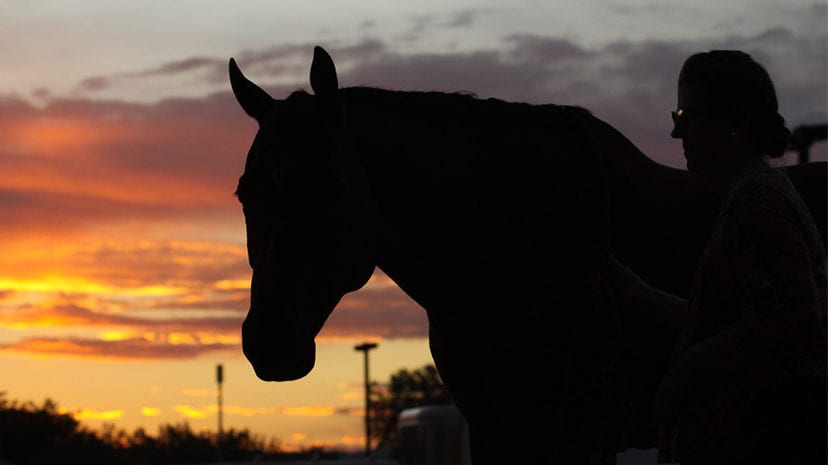The use of cannabinoids, synthetic cannabinoids and other cannabimimetics will be subject to administrative penalties per AQHA Rule VIO401.1, beginning January 1, 2020.
The American Quarter Horse drug-testing process has protected the welfare of the horse and integrity of competition for more than 40 years. Each year, new products appear on the equine supplement market claiming to enhance a horse’s performance. Over the past several years, cannabinoids, also known as CBD, have gained increased attention worldwide and have become nearly mainstream.
Beginning January 1, 2020, American Quarter Horses competing at AQHA-approved shows that test positive for natural cannabinoids, synthetic cannabinoids and other cannabimimetics will be considered in violation of AQHA Rule VIO401.1, which prohibits any stimulant, depressant, tranquilizer or sedative that could affect the performance of a horse. Per AQHA’s revised administrative penalty guidelines, which will be published in the near future, a positive test for such will result in a fine of $2,500, three months suspension and disqualification of the horse.
Analytical methods have been implemented to detect CBD and similar cannabinoids, which are listed as AQHA prohibited substances. Cannabinoids are not categorized as therapeutic medications and are not medications or substances whose use can be reported to show management with a medication report form.
Caution is important when using these products, as their composition widely varies and may not represent what their label claims, and there is no regulatory oversight from the United States Food and Drug Administration, nor guarantee of safety in horses.
Unlike prescription medications, there are no requirements for consistency with label concentration claims. Further, published literature does not currently exist noting detection/retention times of these substances in horses, because inconsistencies in concentration often differ between batches from the same manufacturer. Thus, owners and/or trainers are advised to immediately discontinue any use of these substances to ensure compliance, effective January 1, 2020.
The safest course of action for an owner or trainer is to consult a veterinarian regarding all horse health concerns, have a veterinarian diagnose any illness, and then prescribe FDA-approved products to treat the horse accordingly.
“AQHA’s drug-testing program began in 1973, and it was among the first equine breed associations to do so,” said AQHA Chief Show Officer Pete Kyle. “Our drug-testing program is designed to ensure that horses competing in AQHA-sanctioned competitions are doing so in a manner that will promote the safety and well-being of all horses competing and ensure the enforcement of fair and equitable rules and procedures.”
The drug-testing process ensures that the American Quarter Horse is treated humanely, with dignity, respect and compassion at all times, which is a tenet of the Association’s mission statement.
Certain medications in responsible dosages align with the mission of AQHA animal welfare policies; however, they must be in accordance with AQHA rules. There are two resources at members’ disposal, the AQHA Handbook of Rules and Regulations and the Therapeutic Medication Hotline (1-800-633-2472), staffed by United States Equestrian Federation representatives. Coming soon, AQHA will publish a Drugs and Medication Guidebook.
For questions regarding the drug-testing process, please refer to the AQHA Handbook (VIO300-VIO 305, pages 40-41) or contact AQHA.








